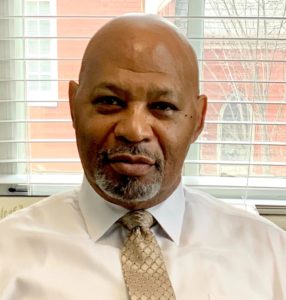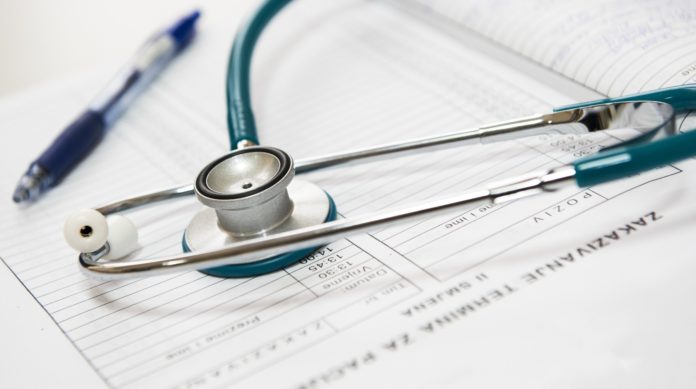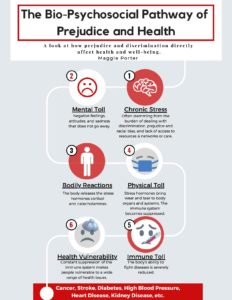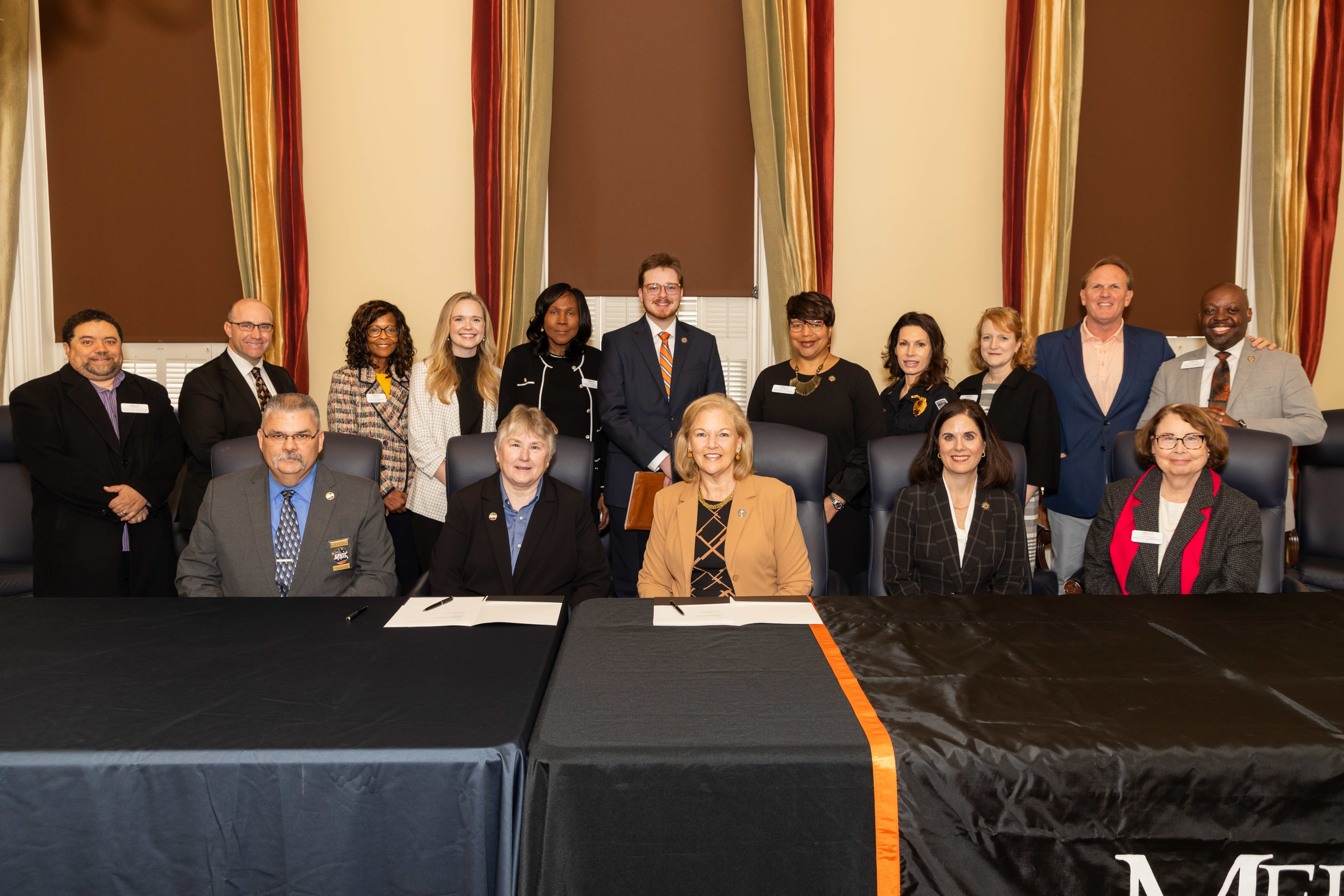Editor’s Note: The following Q&A appears in the Spring 2020 edition of the Global Health in Action Newsletter, produced by Mercer University‘s Department of International and Global Studies. The Prejudice and Health edition features pieces that shed light on the nature of racial prejudice and its health consequences in the U.S.
Dr. Chester J. Fontenot Jr. is director of the Africana Studies program and Baptist Professor of English at Mercer University. Here, he answers questions about racial prejudice and health disparities.
How would you define prejudice?

Prejudice is really an attitude or judgment about the “other” — people who are not like you. It may or may not be based on substantive information. It tends to guide decisions, actions and interactions with other people.
Racism, on the other hand, involves taking prejudicial attitudes to then impact those people’s lives in some way. For example, denying them opportunities, jobs, education, the ability to marry who they want to marry or live in certain places. Racism often becomes systemic. It can become so ingrained in a culture that it almost becomes unconscious. It plays out in many ways in a culture, and people do not even think about it.
In the present panic surrounding the coronavirus, there is news of Asian Americans being accosted as if they are the problem. These prejudicial attitudes have been there for some time against Asians. Now we have racism reaching out from its systemic base that is allowing people to act negatively towards Asians. Most people have some prejudicial attitudes, not all but most. But then some people take these attitudes and embrace them such that the beliefs become the drivers of their interactions with others and structures their lives and decisions.
The most destructive thing in America is that our country has been founded on racist notions, which led to the genocide of Native Americans, the oppression and slavery of people of African descent, and the discrimination of just about every other ethnic group that came here but didn’t look like the white majority. America has a systemic race problem; it’s ingrained.
How does prejudice impact the lives of people in Macon?
It’s laid a baseline for inequality. When you look at the documents and organize everything in a spreadsheet, you see the names of white families who were very much involved in the slave trade, purchasing and selling black people in Bibb County. Many of their descendants still live in Bibb County and are doing quite well financially because they inherited wealth from their slave-holding ancestors. And on the other side, there are black people in Bibb County whose ancestors were bought and sold as slaves. They’ve continued to struggle to achieve some measure of economic stability.
Education is the key to this change because prejudice and racism are learned behaviors — people aren’t born that way.
Dr. Chester J. Fontenot Jr.
How has the history of African-Americans put them at a disadvantage compared to white people in America?
Let’s take two children, one black and one white. They’re the same age, and both grew up in Macon. The white child is the descendant of slave owners; the black child is the descendant of people who were slaves.
The white child grows up, enrolls at Mercer and comes to campus driving a new Range Rover with a $1,000 a week allowance. Also, his parents pay for his tuition, fees, room and board. The black child enrolls at Mercer with either no car, or a used, inexpensive one. He’s a Pell Grant recipient and has to work since his parents aren’t able to help him financially.
Both of these young men mature, have their own families and careers, and eventually die.
The white male passes down his wealth to his children, and this allows them to get a head start on building their own wealth. The black male has no significant wealth to pass down to his children other than a minimal life insurance policy that offers little once his funeral and other expenses are settled. Instead of being able to build his personal wealth, he has spent most of his adult life and career repaying student loans.
Every generation of black people starts from ground zero.
How has racial prejudice affected health outcomes?
I’ve seen this happen with people I know, especially black women who go to their doctors and receive racist statements and behaviors from them. Even though there are some minor biological and physical differences between different ethnic groups, all this means is that our ancestors lived in different parts of the world where the environment required our bodies to adapt in different ways. And there are biological and physical difference between males and females. This does not mean that either sex is superior to the other.
But black women are reporting that their gynecologists, some of whom may subscribe to racist and sexist beliefs, trivialize the complaints of black women. These women have told me that doctors have told them that, “You’re making too much out of this. … Suck it up.” What is the impact of this interaction on black women? The failure to take their medical issues seriously often leads to late diagnosis that results in breast cancer, endometriosis or another illness that could’ve been treated and prevented if these black females had received immediate care. And if she complains about not receiving treatment, she is brushed off as an angry black woman, dramatic and too emotional.
We’ve seen this in the area of chronic pain as well. This is something near and dear to me since I suffer from chronic pain. Many physicians have been less willing to prescribe treatment, including effective pain management, for African Americans because they believe that our bodies are better able to tolerate pain than whites. So yes, race impacts health. You would think it wouldn’t, and it definitely shouldn’t, but unfortunately it does.
And then you have the systemic issues that contribute to a lot of health problems. We know what we need to do to be healthy. People who are economically disadvantaged develop poor people’s diseases: high blood pressure, diabetes, heart disease, etc. Often without health insurance, they tend to get a doctor too late to manage and treat the disease that could have been prevented with timely medical treatment. It’s more expensive to eat healthily and eventually organs are at risk. They have plaque and fat build-up, and they go to the doctor, but by then it’s too late. Organs have started failing. You trap people in poverty because of their race and keep dumping stuff in there — poor health, poor education, lack of resources — and they can’t really do anything about it.
How do you think this problem can be alleviated?
Well, we can’t legislate people’s attitudes, but we can deprive them of the ability to affect other people’s lives. We have laws enacted specifically for that purpose. They say, “No, it’s not OK to call black people the n-word and accost them because they’re a minority.” If you do, there’s a penalty for that.
But then there’s prevention, which involves education. As kids grow up, teaching them that people who are not their race or ethnic group, religious background, sex, etc., are their equals, fully human and deserve equal treatment offers us a chance to choke racism out at its roots. I’ve been a professor for a long time. I have experienced students who came from very racist families. I’ve had some of these students enroll in my classes because they wondered if the things their families said about black people were right. They came to me and said: “The stuff that my family has been saying and teaching is wrong, and I can’t even repeat what they say about black people to you. That’s how bad it is. But I’m not going to do that.” I’ve had many students over the years who decided not to continue that behavior. Education is the key to this change because prejudice and racism are learned behaviors — people aren’t born that way.
To achieve economic justice, there has to be a way of leveling the playing field. I don’t have all the answers to that, but one way is to develop and build our own business communities. I use for an example the Jewish community. They see themselves as a community. I lived with a Jewish family. And I saw that they have their own economy. They build up their own businesses, and they support their own businesses. They even have their own education system as a part of their synagogues. I am a firm believer that if we’re looking for someone else to save us, it isn’t going to happen. We must do it ourselves.











